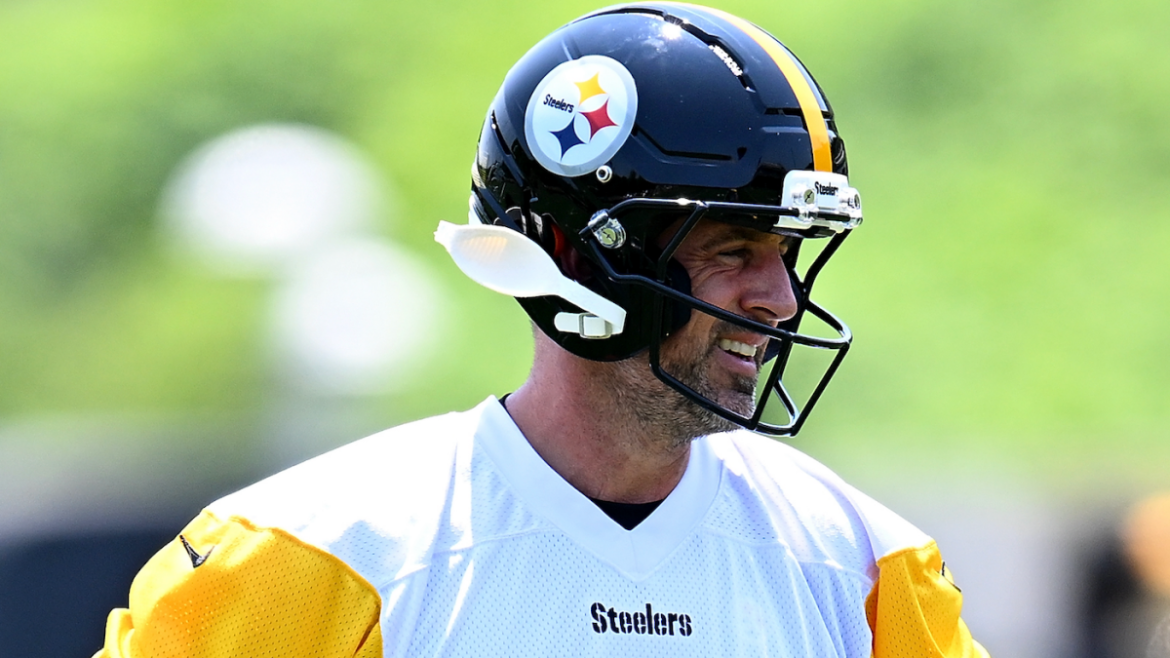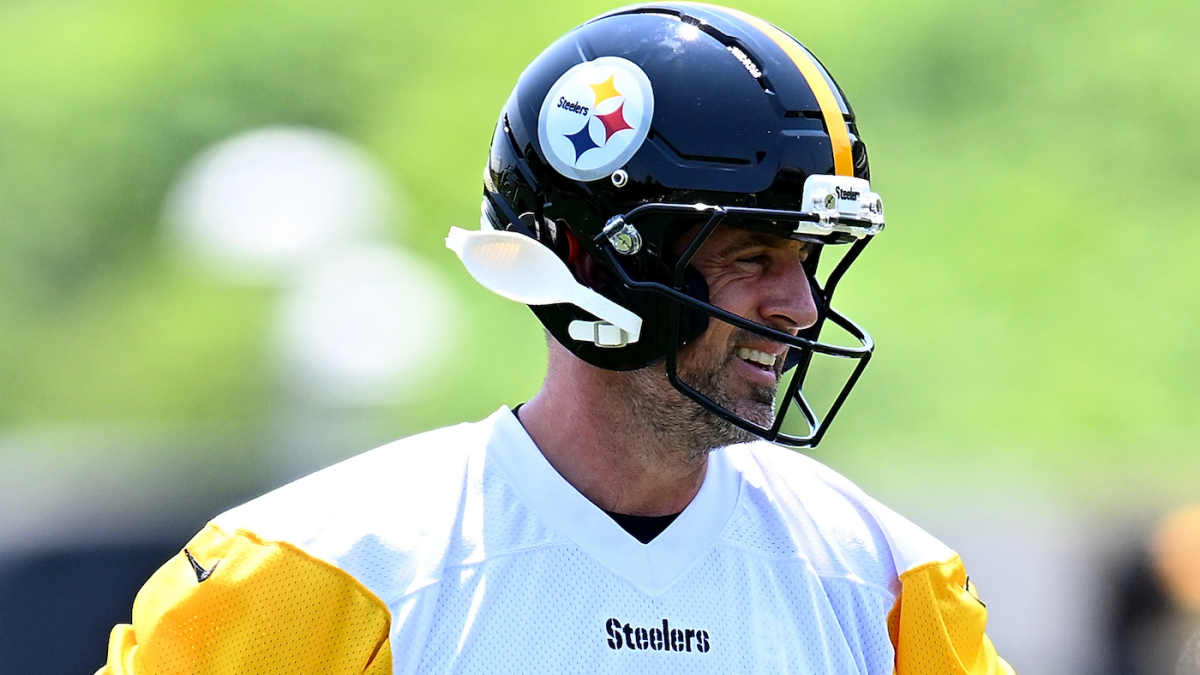The Uncommon Bond: Aaron Rodgers’ Passionate Defense of Mike Tomlin
Introduction: A Rare Display of Loyalty in the NFL
In the high-stakes, often cutthroat world of professional football, alliances are typically formed based on team affiliations, shared goals, or mutual interests. However, the bond between Aaron Rodgers, the veteran quarterback for the New York Jets, and Mike Tomlin, the long-time head coach of the Pittsburgh Steelers, defies conventional expectations. Rodgers’ vocal and unwavering defense of Tomlin has sparked conversations about leadership, respect, and the deeper connections that can form between players and coaches, even across rival teams. This article explores the dynamics of this unique relationship, the reasons behind Rodgers’ fervent support, and the broader implications for team culture and leadership perception in the NFL.
A Vocal Advocate: Rodgers’ Unwavering Stance
Aaron Rodgers is no stranger to controversy, and his defense of Mike Tomlin is no exception. During an appearance on “The Pat McAfee Show,” Rodgers didn’t hold back, calling any disrespect toward Tomlin “complete and utter bullshit.” This strong language underscores the depth of Rodgers’ conviction and his willingness to publicly stand up for a coach he clearly admires. Rodgers’ comments weren’t a one-off expression of support. He has consistently praised Tomlin, highlighting his leadership qualities and the positive impact he has on the Steelers organization. This sustained advocacy suggests a genuine respect that goes beyond the typical player-coach dynamic.
Rodgers’ defense of Tomlin is particularly notable because it comes at a time when the NFL is increasingly scrutinized for its treatment of coaches and players. In an era where social media and instant analysis can quickly turn public opinion against a coach or player, Rodgers’ unwavering support stands out as a rare display of loyalty. It also highlights the importance of respect in the NFL, where the relationship between players and coaches can often be transactional and short-lived.
The Genesis of Respect: A Budding Relationship
The roots of Rodgers’ admiration for Tomlin appear to trace back to Rodgers’ free agency period. Reportedly, the two engaged in regular conversations during this time, during which Tomlin’s leadership style left a significant impression on Rodgers. These interactions provided Rodgers with firsthand insight into Tomlin’s approach, his philosophy, and his ability to connect with players.
Rodgers’ free agency period was a time of uncertainty and change for him. He had spent his entire career with the Green Bay Packers, and the transition to a new team was a significant adjustment. During this time, he likely sought guidance and advice from respected figures in the league, and Tomlin’s wisdom and experience resonated with him. These conversations apparently solidified Rodgers’ belief in Tomlin’s capabilities and character. This foundation of respect, built outside the confines of a traditional player-coach relationship, likely contributes to the strength of Rodgers’ defense of Tomlin.
Beyond the Field: Tomlin’s Leadership Acumen
Mike Tomlin’s success in the NFL speaks for itself. He has consistently led the Steelers to winning seasons and playoff appearances, earning a reputation as one of the league’s most respected coaches. However, his impact extends beyond on-field performance. Tomlin is widely recognized for his ability to cultivate a positive team culture, fostering a sense of unity and shared purpose among his players. He emphasizes accountability, discipline, and respect, creating an environment where players can thrive both professionally and personally.
Tomlin’s leadership style resonates with players, evident in the consistent support he receives from his team. This loyalty is a testament to his ability to connect with individuals, understand their needs, and inspire them to perform at their best. Tomlin’s approach to coaching is not just about winning games; it’s about building relationships and fostering growth. This holistic approach to leadership is likely what drew Rodgers to him and what continues to inspire his defense of Tomlin.
Rodgers’ Perspective: A Player’s Appreciation
Aaron Rodgers has played under several coaches throughout his NFL career, giving him a unique perspective on leadership styles and their impact on team dynamics. His vocal support for Tomlin suggests that he sees something special in the Steelers’ head coach—a quality that sets him apart from his peers.
Rodgers’ appreciation for Tomlin likely stems from a shared understanding of what it takes to succeed in the NFL. Both men are fiercely competitive, driven to excel, and committed to upholding the highest standards of professionalism. This common ground likely strengthens their bond and fuels Rodgers’ desire to defend Tomlin against any perceived slights.
Rodgers’ perspective as a player also provides valuable insight into the importance of respect in the NFL. Players often have a keen sense of who is genuinely respected within the league, and Rodgers’ defense of Tomlin suggests that he sees him as one of those figures. This respect is not just about Tomlin’s success as a coach; it’s about his character, his integrity, and his ability to lead with both strength and compassion.
The Impact of Public Support: Amplifying Tomlin’s Reputation
Rodgers’ public defense of Tomlin carries significant weight due to his high profile and respected voice within the NFL community. His words resonate with fans, analysts, and fellow players, amplifying Tomlin’s reputation and reinforcing his status as one of the league’s premier coaches.
Rodgers’ support also sends a clear message to the Steelers organization and its fanbase: he believes in Tomlin’s leadership and is committed to helping him achieve continued success. This vote of confidence can boost morale and create a sense of optimism as the team embarks on a new season. It also serves as a reminder that respect and loyalty are not just abstract concepts in the NFL; they are tangible forces that can shape the culture of a team and the perception of its leaders.
The Ripple Effect: Fostering a Culture of Respect
Rodgers’ actions extend beyond simply defending one coach. They promote a broader culture of respect within the NFL, encouraging players to appreciate and value the contributions of their coaches. By publicly acknowledging Tomlin’s leadership, Rodgers sets an example for other players to follow, fostering a more positive and supportive environment throughout the league.
Moreover, Rodgers’ stance challenges the tendency to quickly criticize and dismiss coaches based on short-term results. He reminds everyone that true leadership is about more than just wins and losses—it’s about building relationships, fostering growth, and creating a lasting impact on individuals and organizations. This perspective is particularly important in the NFL, where the pressure to win can often overshadow the importance of character and integrity.
Potential Criticisms: Is it Just a Show?
While most analysis points towards genuine respect and admiration, there are some potential counterarguments to consider regarding Rodgers’ passionate defense of Tomlin. Cynics might argue that Rodgers’ comments are simply a calculated move to ingratiate himself with the Steelers organization and its fanbase. By publicly praising Tomlin, Rodgers could be attempting to solidify his position within the team and gain favor with those in power.
Another potential criticism is that Rodgers’ comments are an overreaction to relatively minor criticisms of Tomlin. While some analysts may question Tomlin’s strategies or decisions, it’s unlikely that he faces widespread disrespect within the NFL community. Rodgers’ forceful defense could be seen as disproportionate to the actual level of criticism Tomlin receives.
However, these criticisms overlook the deeper significance of Rodgers’ defense of Tomlin. Regardless of the motivations behind his comments, the fact remains that he has chosen to publicly support a coach from a rival team. This act of loyalty and respect is rare in the NFL and speaks volumes about the values that Rodgers holds dear. It also highlights the importance of leadership and the impact that a coach can have on a player’s career and personal growth.
Conclusion: A Testament to Leadership and Loyalty
Ultimately, Aaron Rodgers’ passionate defense of Mike Tomlin speaks volumes about the power of respect, the importance of strong leadership, and the enduring bonds that can form within the world of professional sports. Rodgers’ unwavering support not only elevates Tomlin’s reputation but also promotes a culture of appreciation and understanding within the NFL. It serves as a reminder that true leadership extends beyond the field, impacting lives and fostering a sense of unity that can drive success both on and off the gridiron.
The story of Aaron Rodgers’ defense of Mike Tomlin is more than just a fleeting headline. It’s a testament to the enduring power of genuine connection and the profound impact that strong leadership can have on individuals and organizations. It serves as a reminder that respect, loyalty, and unwavering support are essential ingredients for building a successful and thriving team, both in the world of sports and beyond. In a league where wins and losses often overshadow the human element of the game, Rodgers’ defense of Tomlin is a powerful reminder of the importance of character, integrity, and the bonds that form between players and coaches.





